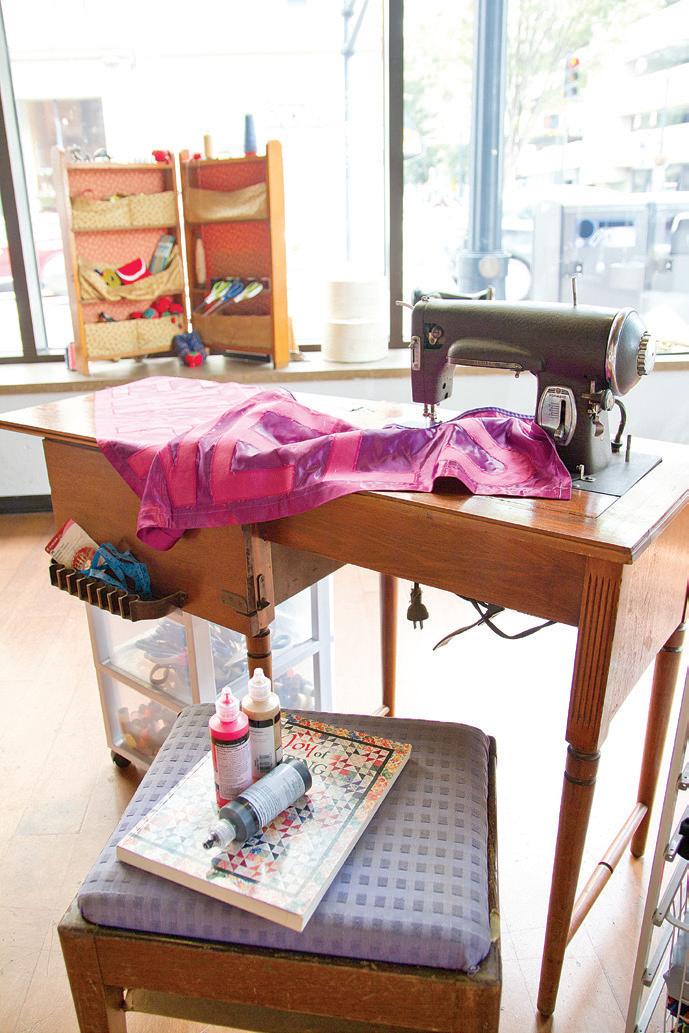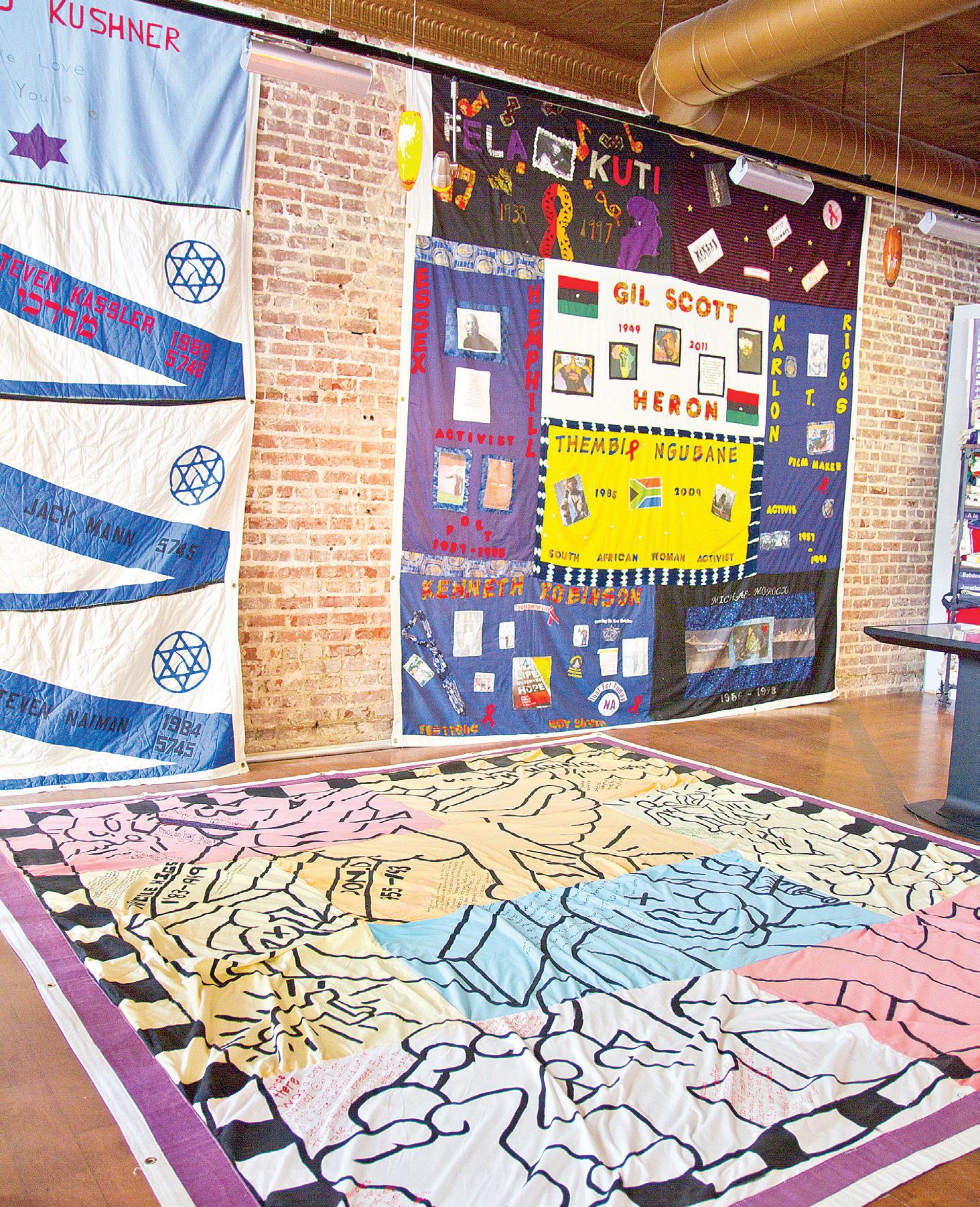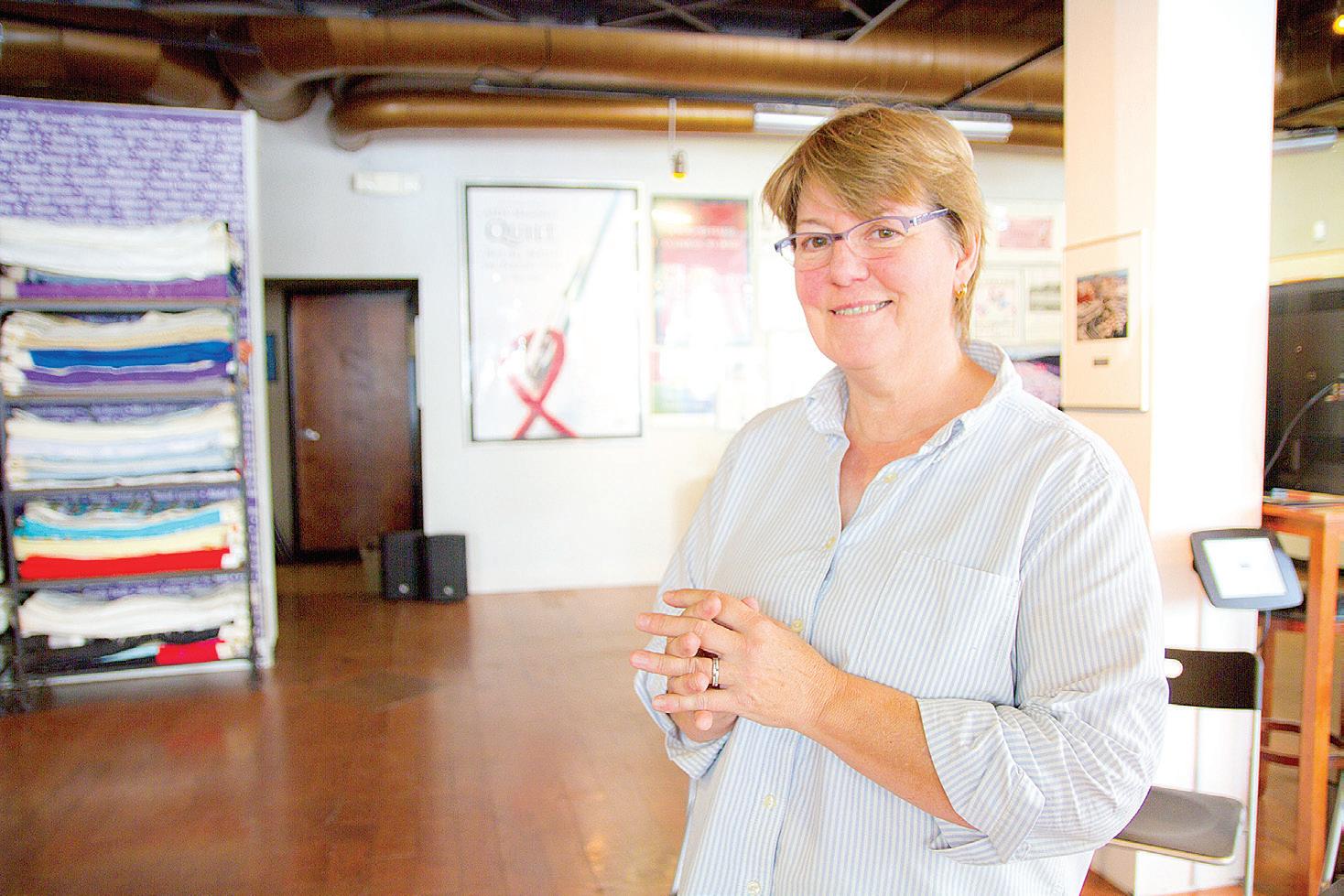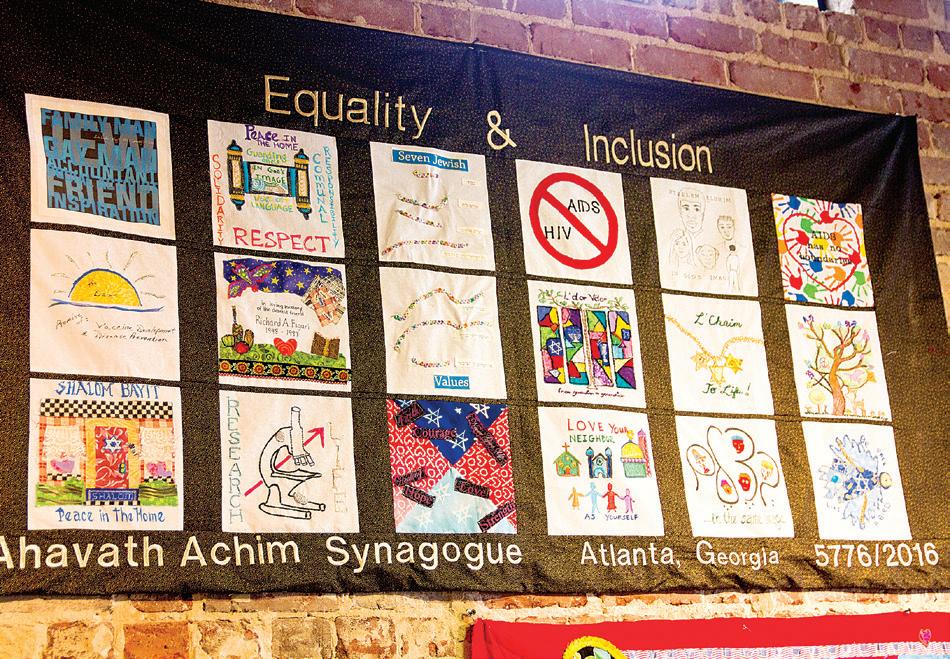
3 minute read
The Neighborhood Stitched in Memory
AIDS Memorial Quilt has new Downtown headquarters

By Clare S. Richie
In 1987, a small group gathered in a San Francisco storefront to honor those who had died of AIDS. They sewed the first panels of what would become The AIDS Memorial Quilt and later formed the nonprofit NAMES Project to facilitate healing, increase public awareness, advocate for a cure and raise money for community-based AIDS organizations.
The NAMES Project, which has called Atlanta home since 2002, just relocated its headquarters to another storefront, this time in Downtown Atlanta. Located at 117 Luckie Street, this 2,500 square-foot space serves as a visitor and education center. Panels of the 54-ton Quilt are also housed at a warehouse in Tucker.
“The Quilt is an amazing cultural record, used in the beginning to give energy to a movement. It’s the most democratic memorial I can think of, made by thousands of everyday people for those they lost to this epidemic. We would love for you to come Downtown and experience it,” said Julie Rhoad, NAMES Project President & CEO.
Each panel commemorates the life of person taken too soon by AIDS and is 3’ by 6’, the size of a human grave.
“We were going to lay out our dead on the National Mall to get people and Congress to recognize that this is not an epidemic about statistics, but about people whose lives were important and cherished,” Rhoad reflected.
On June 27, 1987, the NAMES Project displayed the first 40 panels at San Francisco’s City Hall. Four months later, half million people viewed nearly 2,000 panels on the National Mall.
“It wasn’t just the gay community standing next to these panels, it was our families and friends,” Rhoad said. “If Washington wasn’t going to listen to the gay community, they were certainly going to listen to our moms and dads.”
“Thirty years ago we thought – we will make this Quilt, it’s going to change the world, we’re going to end AIDS, and once back in San Francisco, we’ll take it apart and return the panels.”
But, they returned to find thousands of boxes of new panels. “The founders knew we had to go on,” Rhoad said.
The next year, they launched a four-month, 20-city, national tour that raised more than $500,000 for hundreds of AIDS service organizations. The Quilt had quadrupled in size to more than 8,000 panels by the time it reached Washington, D.C. Celebrities, politicians, families, lovers and friends read aloud the names of the people represented on the panels, a practice that continues today.
The Quilt symbolized the enormity of the AIDS epidemic and its extended human toll. It galvanized a generation to sway government policy and funding decisions and was nominated for a Nobel Peace Prize.
In 2002, the NAMES Project decided to move its headquarters to Atlanta. ‘The choice to move was very intentional as the South was becoming the epicenter for HIV and AIDS,” Rhoad said. “And there isn’t a better city that models civil rights leadership both on a domestic and international level.”
The Quilt was declared an official American Treasure in 2005 and awarded $100,000 to help ensure its survival for future generations. The nonprofit now photographs the panels and puts them online at aidsquilt.org. Visitors to the website can search for a panel by name or block number (8 panels are connected on 12’ by 12’ blocks). Onsite, you can also explore the quilt in its entirety on a digital browser, Quilt Touch, or come make a panel at a free workshop.
The next step is to digitally link each panel to the individual’s backstory and ephemera items like letters, photos, wedding rings and ashes.
The new Downtown location seeks to attract a variety of visitors in a space that doubles its previous capacity for on-site programming.

“Panel-makers or those tied to the 100,000 names come because it’s their linking object to their loved one,” Rhoad said. “We give them time with their panel and tell them every place it’s traveled.”
Rhoad recalled a family from Knoxville who held their reunion in Atlanta to include Eric, who’s remembered on The Quilt. His mom was overheard saying, “Well, Eric got to go to Hawaii before anyone else in the family.”
As The Quilt continues to grow, it’s a reminder that the epidemic rages on. AIDS has already claimed 35 million lives and the CDC reports that more than 1.2 million people in the U.S. are living with HIV.

“Science, public health and medicine have made extraordinary advances telling us that if we test and treat enough people we can bring about an end to this disease – but society hasn’t kept up,” Rhoad commented. “That requires a huge investment of money, time, infrastructure and resolve.”
For more information, visit aidsquilt.org.










